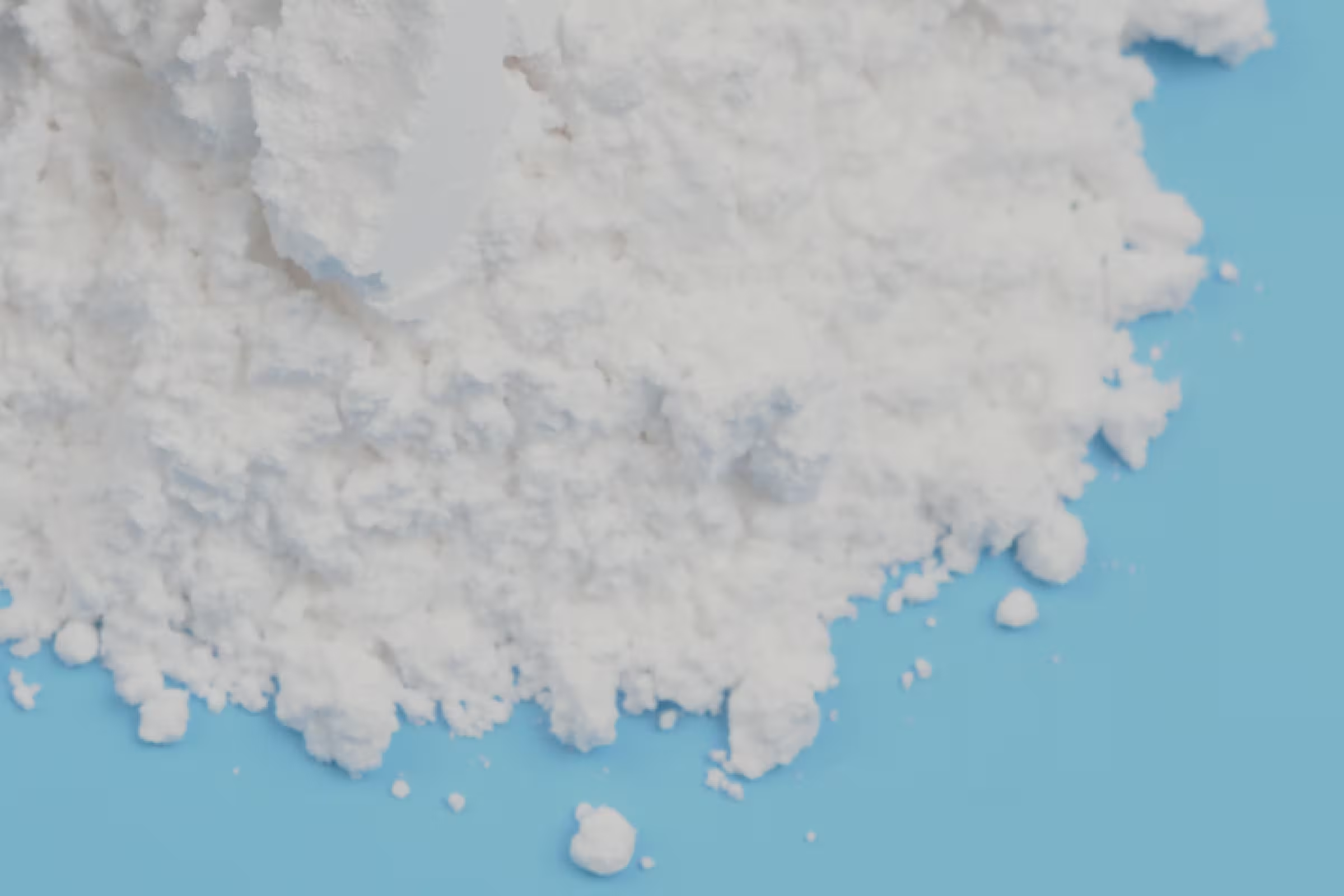

Everything You Should Know About Vaginal Discharge
Wondering if daily vaginal discharge is normal? Learn what's typical, when to worry, and how to tell healthy from unusual discharge.
Words by Olivia Cassano
Scientifically edited by Dr. Krystal Thomas-White, PhD
Medically reviewed by Dr. Christine Vo, MD
Daily vaginal discharge is normal unless it’s accompanied by other symptoms, like itching, burning, or a bad odor. It’s easy to think of discharge as an inconvenience, but it’s actually a pretty amazing aspect of vaginal health. And as with all things related to the human body, what is “normal” can be up for interpretation.
Read on to learn more, including what normal vaginal discharge looks like, how much is normal, and when to see a healthcare provider.
What is vaginal discharge?
Vaginal discharge is fluid from the cervix and vagina that helps clear out old cells and keep your reproductive tract clean. Aside from menstrual blood, practically any fluid leaving the vagina can be characterized as vaginal discharge — think of it as the solution your vagina uses to self-clean.
What does normal vaginal discharge look like?
Though “normal” varies slightly from person to person, healthy discharge is generally mucus-like, clear, whiteish, or slightly yellow. Discharge can have a slight odor (it’s a cocktail of dead vaginal skin cells and bacteria that comes out of an organ, after all), and normal discharge can smell faintly musky, sour, or “earthy”. Closer to your period, you might notice that the smell of your discharge is a bit more noticeable or starts to smell more metallic.
Vaginal discharge also responds to the hormonal fluctuations caused by your menstrual cycle and follows a pretty predictable pattern. Typically speaking, healthy vaginal discharge will follow a monthly pattern. Normal vaginal discharge types include:
- Dry discharge: after your period, there may be little to no cervical mucus or discharge present.
- Sticky and white: as estrogen levels start to rise, CM becomes sticky and pasty (often crumbly and white when dried).
- Creamy vaginal discharge: as the water content increases throughout your menstrual cycle, discharge can start to look milky, similar to lotion.
- Clear sticky vaginal discharge: just before ovulation, CM becomes clear and resembles the consistency of raw egg whites. After ovulation, CM returns to dry and sticky until your next period and the cycle continues.
Any changes in the odor or color of your discharge might indicate a potentially imbalanced microbiome, and may indicate an untreated vaginal infection like bacterial vaginosis (BV) or yeast infection — so it’s best to reach out to your doctor!
Abnormal vaginal discharge might be gray, yellow, or green, have a watery, clumpy, or frothy consistency, and have a foul or fishy odor.
Abnormal discharge can also be a symptom of a sexually transmitted infection (STI), so it's really important not to ignore it. It's also worth noting that many bacterial infections can cause similar symptoms, so as tempting as it is to self-diagnose, your best bet is to see your healthcare provider.
Is it normal to have discharge every day?
Many of us grew up believing discharge is unhealthy, but that’s not the case. Yes, in some cases vaginal discharge can be a telltale symptom of an infection, but it really depends on the type of discharge. The color, consistency, and smell of your vaginal discharge is a key indicator of whether it’s healthy or abnormal.
Your vagina is a self-cleaning organ, and discharge is quite literally proof of that — so having vaginal discharge every day is just a sign of a healthy vaginal microbiome.
What amount of vaginal discharge is normal?
On average, premenopausal women have about one-half to one teaspoon (2 to 5 mL) of (mostly odorless) vaginal discharge every day. But how much vaginal discharge you make can vary from person to person, so what is normal for you might be unusual for someone else. The key is getting used to how much daily discharge your body makes, so it’s easier to spot any problematic changes.
You might notice more discharge near ovulation (about halfway through your cycle), in early pregnancy, or when switching to a new form of hormonal birth control.
Too much discharge, on the other hand, can be a sign of an infection. But once again, "too much" is subjective.

Recurrent symptoms? Get Evvy's at-home vaginal microbiome test, designed by leading OB-GYNs.
Why do I have so much discharge?
There are several reasons why you might have a lot of vaginal discharge. For starters, it might just be totally normal for your body. Here are some reasons why you might have excessive discharge, both harmless and worth checking out.
Ovulation
The amount of vaginal discharge you produce can change throughout your menstrual cycle. When you're ovulating, you may notice an increase in discharge that has the consistency of raw egg whites. As estrogen levels peak one to two days before ovulation, your body starts producing more cervical mucus, which becomes clear, slippery, and stretchy to help sperm travel up toward the egg.
If you’re trying to conceive, keeping track of your vaginal discharge can help you figure out when you're ovulating and can get pregnant. This is called the cervical mucus method or natural family planning. If you can stretch your discharge between your index finger and thumb, it's a reliable sign that you're ovulating and have a good chance of conceiving.
Pregnancy
An increase in vaginal discharge can be an early sign of pregnancy. It’s normal to have more vaginal discharge in pregnancy, as early as a couple of weeks before conception (before you even know you’re pregnant). It’s your body’s way of preparing for pregnancy and preventing any infections traveling up from the vagina to the uterus. Pregnancy vaginal discharge is usually thin, clear, or milky white and doesn’t smell bad.
Sexual arousal
It's normal to experience extra lubrication or wetness when you're feeling sexually aroused. Your body is just getting ready for intercourse and trying to make things more comfortable for you. It’s worth noting, though, that arousal fluid is slightly different from daily discharge. Rather than being a daily biological function, arousal fluid is produced by glands in and around the vagina (called Bartholin glands) in response to sexual stimulation.
Infections
Abnormal vaginal discharge can often be a sign of an infection, including an STI. Here are some common conditions that cause excessive discharge, and what symptoms to look out for:
- BV: grey, watery discharge that has a fishy odor.
- Yeast infection: thick, white, clumpy vaginal discharge that looks like cottage cheese.
- Trichomoniasis: frothy, green discharge that has a foul or “rotten” smell.
- Chlamydia: thick, yellow or white vaginal discharge with a strong, foul odor.
- Cytolytic vaginosis (CV): white, watery, or clumpy vaginal discharge.
Why does my vaginal discharge smell?
Normal vaginal discharge has a slightly tangy or musky smell that is entirely unique to you. Remember, it’s a bodily function, so it’s ok for it to have a mild odor. That said, any sudden or significant changes in odor (especially if it’s fishy or “rotten”) could indicate an imbalanced microbiome and may indicate an untreated infection.
Abnormal vaginal discharge treatment
If you do notice any bothersome symptoms, including abnormal discharge, try not to panic. Most vaginal infections and sexually transmitted infections are easily treatable. After performing a physical examination and possibly running a few tests (like a swab or urine sample), your doctor will prescribe the right medication based on what’s causing the issue.
Treatment depends on the type of infection, but here are some of the most common options:
- Antibiotics: Often prescribed for infections like bacterial vaginosis, chlamydia, or gonorrhea. Common options include metronidazole, clindamycin, azithromycin, and doxycycline.
- Antifungal medications: Used for yeast infections. These may include fluconazole (oral), or vaginal treatments like miconazole and clotrimazole.
- Antiparasitic medications: If trichomoniasis is the cause, your doctor may prescribe metronidazole or tinidazole.
- Boric acid suppositories: A gentle yet effective option for treating recurrent yeast infections or bacterial vaginosis, especially when other treatments haven’t worked. These are usually used as vaginal suppositories and can be found over-the-counter, though it’s best to use them under medical guidance.
It’s important to finish the full course of whatever treatment your doctor gives you, even if you start to feel better before it’s done.
After getting your Evvy test results, eligible users have the option to order a personalized prescription treatment program developed by a provider based on your unique vaginal microbiome results. It’s a personalized, science-backed approach to getting the care you need, without the guesswork or waiting rooms.
Can stress affect vaginal discharge?
Yes, stress can affect vaginal discharge. Studies show that stress is linked to changes in the vaginal microbiome, which can increase the risk of bacterial vaginosis, a common cause of abnormal discharge. Research has found that higher stress levels are connected to a greater likelihood of having BV, even after considering other risk factors.
Stress impacts the body’s hormones and immune system. Increased stress hormones like cortisol and prolactin can weaken the vaginal barrier and lower protective Lactobacillus bacteria. This makes the vagina more prone to imbalances and symptoms like discharge.
Additionally, stress can change how women perceive discharge. Studies show that women with higher stress or mental health issues are more likely to notice vaginal discharge, even if they don’t have infections.
How to prevent abnormal vaginal discharge
Your discharge is often related to how well-balanced your vaginal microbiome is, so one way to normalize your discharge is to take better care of your microbiome (and overall reproductive health).
Although you can't entirely prevent vaginal infections, there are a few things you can do to keep your vagina healthy and reduce your risk of developing one:
- Don't douche: douching can flush away the healthy bacteria in your microbiome and make you more prone to BV. Similarly, feminine hygiene products can affect your vaginal pH and give bad bacteria a chance to grow. Wash your vulva with warm water and, if really necessary, mild soap.
- Practice safe sex: use a barrier method like condoms or dental dams, especially with a new sexual partner. Cover sex toys with a condom during partnered sex, and make sure to clean them after each use.
- Get tested regularly: anyone who is sexually active (yes, even if you're in a monogamous relationship) should get an STI test at least once a year (or more often if you have several sexual partners).
We know you’ve probably heard these strategies before, and that they don’t always help — it can be frustrating to get the same advice without different results.
When to see your healthcare provider
Vaginal discharge is a key indicator of vaginal health, and knowing if the discharge you're producing is normal or not is vital for your overall well-being.
Knowing your baseline can help you know if you should see your healthcare provider. Keep an eye out for the following symptoms:
- Green or gray discharge
- A foul, rotten, or fishy odor
- Frothy, clumpy, or watery vaginal discharge
- A drastic increase in the amount of discharge
- Vaginal itching
- A burning sensation when you pee or have sex
- Bleeding between periods or after sex
- Pelvic pain or discomfort.
Get care with Evvy
This is why Evvy exists! By testing and retesting your microbiome over time, you can see how the changes you make in your diet, lifestyle, and self-care routine are impacting your vaginal microbiome’s defense against infections.
Built with leading OB-GYNs, Evvy is the first-ever platform for vaginal healthcare that combines state-of-the-art testing, prescription treatment, and 1:1 coaching to create personalized care as unique as your vaginal microbiome.* For eligible testers, we offer access to first-of-its-kind clinical care, including a personalized prescription treatment program developed by a care provider, supportive coaching, and much more. Start your vaginal health journey with Evvy today.
FAQ
Is it normal to have vaginal discharge daily?
Yes! It's normal to have a healthy vaginal discharge every day. Your reproductive tract produces discharge (a mix of cervical mucus and vaginal secretions) to flush out old cells and bacteria and keep your vagina clean and lubricated. Making discharge every day is a good thing and a sign that your vagina is healthy and happy. Most people produce around half to one teaspoon of discharge daily, but this amount can vary from person to person and depending on where you are in your menstrual cycle.
Is it normal to have discharge every day that smells?
That depends on the smell! Healthy vaginal discharge is made up of bacteria and old cells, so it’s normal for it to have a slight smell. It can have a range of normal smells, from musky and earthy to sour. That said, the odor is usually pretty mild. A very strong or foul smell, whether it’s fishy or “rotten”, is a sign of a vaginal infection like bacterial vaginosis, or an STI — especially if accompanied by other vaginal symptoms, including pelvic pain, itching in or around the vaginal opening.
Can you stop daily discharge?
You can’t stop normal discharge, nor should it be stopped! It's your body's way of keeping your vagina clean and healthy. You can, however, reduce your risk of developing an infection that will lead to abnormal discharge.
How do you know if something is wrong with your discharge?
The color, consistency, and even smell of discharge vary throughout your cycle, but there are definitely times when discharge can be a sign that something’s off. You’ll want to pay attention if the discharge suddenly and dramatically changes in color, consistency, or smell. For example, if it turns green, gray, or dark yellow, becomes unusually thick or frothy, or starts to smell really strong or fishy, that’s worth checking out. Also, if it’s accompanied by vaginal itching, burning, swelling, irritation, or pain during sex or while peeing, those are red flags too. Basically, if your discharge feels different in a way that’s uncomfortable or just doesn’t seem right for your body, it’s a good idea to see your doctor. It might be something simple like a yeast infection or bacterial vaginosis, or it could be an STI.
What type of discharge is unhealthy?
Unhealthy vaginal discharge usually shows up as a noticeable change in smell, color, or texture compared to what’s normal for you. If your discharge has a strong fishy smell (especially after sex), looks gray, green, or yellow, or feels unusually thick and clumpy (like cottage cheese) it could be a sign of an infection like BV, trichomoniasis, or a yeast infection. It might also come with itching, burning, or irritation. Everyone’s body is different, so if something feels off or unfamiliar, it’s a good idea to check in with your provider or consider taking a vaginal microbiome test.
How does discharge change throughout the cycle?
Vaginal discharge naturally changes throughout your menstrual cycle due to shifting hormone levels. Right after your period, you might notice little to no discharge as estrogen levels start to rise. As you approach ovulation (around the middle of your cycle), discharge usually becomes clear, stretchy, and slippery (similar to egg whites), which helps sperm travel more easily. This is often when discharge is most noticeable. After ovulation, discharge tends to thicken and become creamier or stickier as progesterone levels rise. Just before your next period, it may become lighter or dry up again. These patterns are a healthy part of your cycle, but if you notice unusual odor, color, or irritation at any point, it could be a sign of an imbalance worth looking into.





